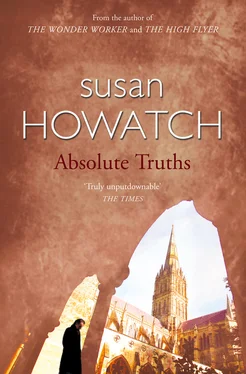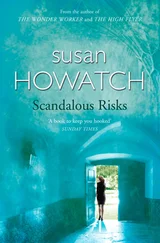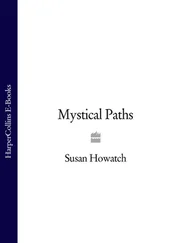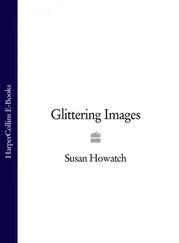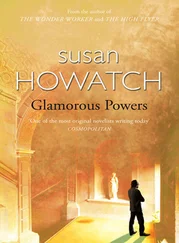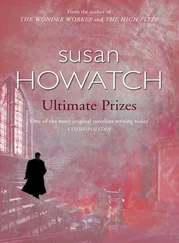1 ...7 8 9 11 12 13 ...37 This lack of venom in my new job made committee work less tiring. I was also soothed by the deference shown to me whenever I ventured into the Palace of Westminster to attend the House of Lords or whenever I made a visit to one of the parishes in my diocese. But being a revered figurehead can be a lonely business and the dark side of all the deference was the isolation. Looking back I can see that this was when my marriage entered a new phase of intimacy and interdependence: increasingly I found that in my daily life I could only be my true self, relaxed and at ease, with Lyle. Of course I could also be myself with my spiritual director, now only twelve miles away at Starrington Magna, but Jon had become a recluse after his wife’s death in 1957, and although I did visit him regularly he never came to Starbridge. Apart from my wife I was on my own in that gilded cage of a Cathedral Close.
At last I pulled myself together. Realising that moping for Cambridge and bewailing my loneliness was all very self-centred, spiritually immature behaviour, I managed to stop thinking about myself and start thinking instead of how I could best serve God – a move which meant I poured myself into my work as I embarked on a massive programme of reform.
I started with the Theological College. It had begun life in the nineteenth century as an independent institution, cushioned by an endowment which permitted only modest fees to be charged, but in the twentieth century mismanagement and rising costs had brought it under the control of the diocese and the bishop was always one of the governors. I not only increased the diocesan grant which supplemented the now almost worthless endowment, but I also pushed the diocese into taking out a loan so that the premises could be improved and expanded. My fellow-governors, long accustomed to dozing at meetings of the board, were stunned by my activities but no one dared oppose me; they realised that no bishop of Starbridge had ever been so well qualified as I was to pump new life into that place, and besides, when I produced the evidence that showed the institution had become a moral disgrace they were so shocked that they almost fell over themselves to give me carte blanche.
I took a similar line with the diocese itself, which was also in a most sluggish and decayed state. My predecessor as bishop, I regret to say, had reputedly died of inertia. In the 1930s Alex Jardine had set the diocese alight with his dynamism, but after his retirement the authorities had taken fright and appointed mild-mannered nonentities to the Starbridge bishopric with the inevitable, enervating results. Dr Ottershaw, Dr Jardine’s successor, had at least allowed himself to be organised by an efficient archdeacon, but Bishop Flack, my immediate predecessor, had made a disastrous archidiaconal appointment and the diocese had become slothful. How quickly men become demoralised when their leaders fail to be crisp, conscientious and hard-working! At least my years in the army had taught me that particular lesson. Having woken everyone up by shaking them, metaphorically speaking, until their teeth rattled, I embarked on a plan of radical reorganisation.
All this took much time and kept me very busy. I appointed a suffragan bishop to manage Starmouth, the large port on the south coast, and I streamlined the diocesan office in Starbridge by pruning the bureaucracy which had mushroomed during the days of Bishop Flack. In addition to all this high-powered executive activity, I had to find the time to visit parish after parish in the diocese in order to preach, confirm and tend the flock in my role as spiritual leader. And as if all this activity were not enough to fell even St Athanasius himself, I was soon serving on committees at Church House, the Church of England’s London headquarters, and toiling at sessions of the Church Assembly. The last straw was when my turn came to read the prayers every day for a short spell in the House of Lords.
Dashing up to London, dashing around the diocese, dashing from committee to committee and from parish to parish, I began to wonder how I could possibly survive, but propped up by a first-class wife, a first-class spiritual director, two first-class archdeacons, a first-class suffragan bishop and a first-class secretary, I finally learnt how to pace myself, how to delegate, how to spend most effectively the time I allotted to private prayer and, in short, how to avoid dropping dead with exhaustion. After a while, when I began to reap the benefits of a more efficient diocese, life became less frenetic. But not much. No wonder time seemed to pass so quickly. Sometimes the days would whip by so fast that I felt as if I could barely see them for dust.
This arduous professional life, which became increasingly gratifying as I earned a reputation for being a strong, efficient, no-nonsense bishop, was punctuated by various awkward incidents in my private life, but fortunately Lyle and I, now closer than we had ever been before, managed to weather them tolerably well. Charley was no longer a problem. He recovered sufficiently from the agony of his eighteenth birthday to do well in his A-level examinations and I did not even have to pull a string to ensure his admittance to my old Cambridge college. He then decided to defer his entry until he had completed his two years of National Service. At first he loathed the army, finding it ‘disgustingly Godless’, but soon he was saved by his ability to speak fluent German, and he wound up working as a translator in pleasant quarters near Bonn. Having survived this compulsory diversion, he at last began to read divinity at Cambridge. Here he was ecstatically happy. Glowing reports reached me, and after winning a first he proceeded to theological college – but not to the one in Starbridge; I was anxious that he should have the chance to train for the priesthood far from the long shadow I cast as a bishop. To my relief his desire to be a priest never wavered, his call was judged by the appropriate authorities to be genuine and eventually he was ordained. It was a moment of enormous satisfaction for me and more than made up for the fact that I continually found Michael a disappointment.
Michael had not wanted to move to Starbridge. He thought it was the last word in provincial boredom, and we were obliged to endure sulks, moans and tart remarks. Later he developed an interest in popular music, already a symbol of rebellion among the young, and began to attend church only mutinously, complaining how ‘square’ it all was. Recognising the conventional symptoms of adolescent dislocation I kept calm, said little, endured much and waited for the storms to pass, but to my dismay the storms became hurricanes. Michael discovered girls. This was no surprise, particularly since he was a good-looking young man, and all sensible fathers are glad when their sons discover that girls are more fun than cricket, but I was concerned by the girls in whom he chose to be interested and even more concerned when he showed no interest in drinking in moderation.
He managed to do well enough at school to begin the training to be a doctor, but before long he was asked to leave medical school, not because he was incapable of doing the work but because he was incapable of avoiding fornication and hard drinking. Naturally I was concerned. I was also, as Lyle well knew, furious, shocked, resentful, embarrassed and bitter. She somehow managed to stop me becoming wholly estranged from Michael, and she somehow persuaded him to promise to reform. Jon suggested that I might make more time to talk to Michael, since such a move would make it unnecessary for him to behave badly in order to gain my attention, but I disliked the idea of being bullied by bad behaviour into reorganising my busy timetable, and I thought it was up to Michael to pull himself together without being pampered by cosy little chats.
Читать дальше
